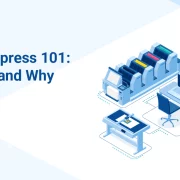Developed by renowned Soviet psychologist Lev Vygotsky, the Zone of Proximal Development (ZPD) defines the range of tasks a learner can complete with guidance but not yet independently. This foundational theory illuminates both a student’s current abilities and their potential for growth, serving as a crucial framework for educational strategies.
Q: What is the Zone of Proximal Development (ZPD)?
A: Coined by Vygotsky, this term refers to the skills and tasks a learner can successfully perform with help from a more experienced individual, bridging the gap between current competence and future potential.
Q: How does this concept relate to learning?
A: The theory highlights the importance of guided instruction. By identifying tasks that students can accomplish with assistance, educators design learning experiences that gradually foster independent mastery.
Q: What are the key components of this theory?
A: Essential elements include the learner’s present skill level, the tasks achievable with support, and the tailored guidance provided by teachers or peers, often referred to as scaffolding.
Q: How is the concept applied in educational settings?
A: Teachers use these principles to determine the optimal challenge level for each student, offering personalized feedback and structured support to advance learners toward higher proficiency.
Q: What role does social interaction play in this framework?
A: Social interaction is central, as collaboration with peers or mentors provides the support necessary for learners to expand their capabilities and progress beyond their current limitations.
Q: How can educators assess a student’s progress within this zone?
A: Assessment can involve observation, formative evaluations, and feedback sessions that help determine when a learner is ready to move from guided tasks to independent performance.
Q: Can you provide practical examples of this concept in action?
A: Examples include group projects where a knowledgeable peer guides others, one-on-one tutoring sessions, and digital platforms that adapt challenges based on individual progress.
Q: How do modern technologies support the application of these principles?
A: Adaptive learning systems and educational software incorporate these ideas by monitoring student performance and adjusting instructional support to meet evolving needs.




